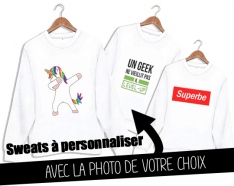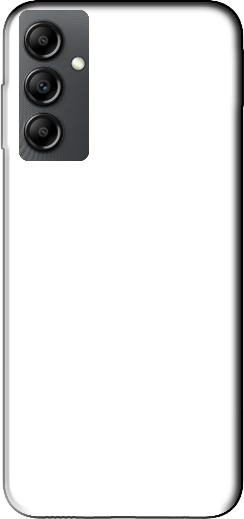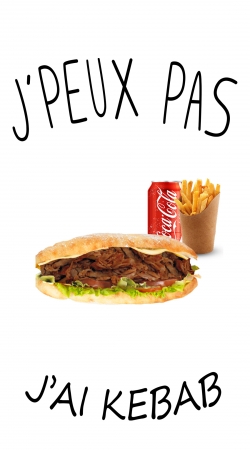Je peux pas jai kebab sweatshirt
by Cadeaux<p> Double stitching, fitted sleeves. Spandex reinforced 1x1 rib, fabric turned a quarter turn to eliminate the central fold. Also available in child sizes. Round collar. The sweater is available in adult and child sizes. </P> <p> Fabric turned quarter turn to eliminate the central fold. 1x1 rib ribs in spandex. </P> <h3> Composition of the sweatshirt </h3> <p> 50% Cotton, 50% polyester fleece </p> <h3> Weight </h3> <p> White 265 g / m² </p> <h3> Available size </h3> <p> S 46 M 48/50 L 50/52 XL 54/56 2XL 58/60 3XL * 60/62 4XL * 64/66 5XL * 68 / 72 </p> <p> Child size: 3/4 years, 5/6 years, 7/8 years, 9/11 years and 12/13 years. </P> <h3> Washing instructions </h3> <p> Machine wash at medium temperature. Wash inside out with similar colors. Non-chlorinated bleaching agents only. Drying machine at medium temperature. Do not iron on the pattern. Do not dry clean </p>
Design Je peux pas jai kebab sweatshirt
Illustration for fans of fast food food "I can not I KEBAB" The term kebab, borrowed from Arabic, means "grill", "grilled meat" and refers to various grilled meat dishes in many countries that have generally been part of the Ottoman and Persian worlds (including Northern India). In its French-speaking use, as in other Western languages, the term used alone refers specifically to the sandwich filled with grilled meat on the spit or doner kebab invented in Berlin, Germany, in the 1970s. By metonymy, "kebab" designates also the type of restaurant (in) that serves it. Among the most common equivalents of the term doner kebab, the term chawarma (and its variants) is used in the Middle East. These terms refer to either the meat and its method of preparation, or the corresponding sandwich.









